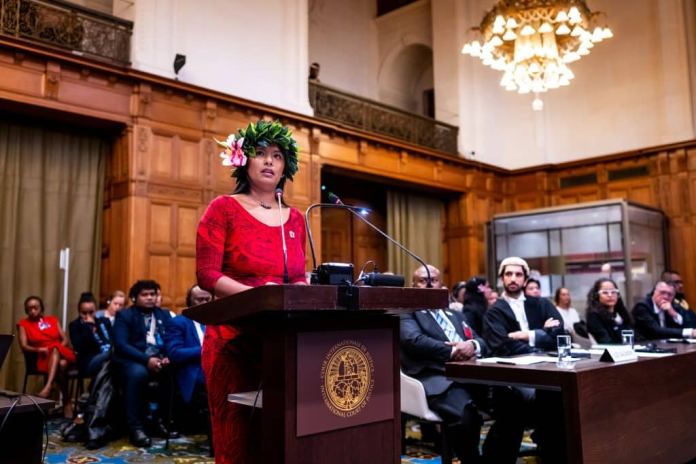The International Court of Justice (ICJ) issued a historic advisory opinion clarifying nations’ legal obligations to combat climate change, a turning point for vulnerable states facing existential threats from rising seas, according to AP News.
Initiated by the island nation of Vanuatu and endorsed by 132 UN member states, this non-binding yet authoritative ruling addresses two critical questions: the duties of states under international law to protect against greenhouse gas emissions, and the legal consequences for significant climate harm.
The ICJ’s opinion arrives amid a cascade of climate jurisprudence. Earlier this month, the Inter-American Court of Human Rights affirmed that states possess binding obligations to prevent irreversible environmental damage and recognise a human right to a stable climate.
In April 2024, the European Court of Human Rights ruled that Switzerland violated citizens’ rights by failing to implement sufficient climate measures, establishing that Article 8 of the European Convention encompasses protection from climate impacts.
These build upon the landmark 2019 Urgenda case in the Netherlands, where the Supreme Court deemed climate protection a human right.
Vanuatu’s Attorney General Arnold Kiel Loughman emphasised the stakes during December hearings:
The survival of my people and so many others is on the line.
Scientific data underscores the urgency, with global sea levels rising 4.3 centimetres in the decade up to 2023, disproportionately affecting Pacific nations. The world has already warmed 1.3°C since preindustrial times due to fossil fuel consumption.
While the ruling cannot directly enforce action, it provides crucial leverage for domestic litigation and international accountability. Joie Chowdhury, Senior Attorney at the Center for International Environmental Law, noted:
What makes this case so important is that it addresses the past, present, and future of climate action… we cannot solve the climate crisis without confronting its roots.
Major petroleum-producing nations, including the United States and Russia, vehemently opposed emissions mandates during proceedings. Their resistance highlights implementation hurdles, though the opinion may pressure laggard states through diplomatic channels.
Ralph Regenvanu, Vanuatu’s Climate Minister, lamented that international agreements “are not moving fast enough,” signalling the ruling’s role in breaking political deadlocks.
The ICJ’s integration of transboundary environmental law, human rights frameworks, and intergenerational equity considerations establishes that climate obligations extend beyond current populations to future generations. By addressing historical responsibility alongside future targets, it offers a comprehensive legal blueprint for the COP30 summit in Brazil and beyond.
